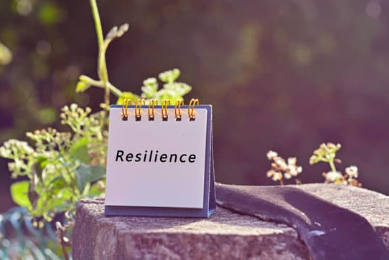13-9, 2 Rio Tower, Persiaran Rio, Bandar Puteri, 47100 Puchong, Selangor, Malaysia.

Nurturing Resilience in Youth: Building Protective Factors against Suicide
- On
- InBlog
Welcome to our blog post, where we will address the sensitive and vital topic of youth suicide. Adolescence can be a rollercoaster of emotions and experiences, so it’s crucial to equip young individuals with the necessary tools to navigate these challenges successfully. One powerful tool that can make a significant difference is resilience.

How Resiliency can make a difference in preventing youth suicide?
Resilience is a robust shield, protecting our youth when they face overwhelming hopelessness. It empowers them to bounce back from tough times and navigate the complexities of growing up. By nurturing resilience, we can create a supportive environment that empowers our youth and reduces the risk of suicide.
But why is it so important to openly discuss youth suicide and focus on building resilience? Youth suicide is a deeply concerning issue that affects countless young people worldwide. Our responsibility is to address it openly and honestly to bring about positive change. By understanding resilience’s role in preventing youth suicide, we can take proactive steps to protect and support the younger generation.
So, what exactly is resilience? Resilience is the ability to adapt and bounce back in adversity, stress, or challenging circumstances. It’s like having a mental and emotional toolkit that helps young individuals navigate their challenges to adulthood.
Building resilience gives young people the strength and skills to cope with life’s difficulties. They learn to find effective solutions to problems, think creatively when faced with obstacles, and develop the social skills to seek support from others. Resilience also fosters flexibility, enabling them to adjust their plans when necessary and maintain productivity in our increasingly distracting world.
Creating a supportive environment for resilience involves understanding the key ingredients. These include fostering critical thinking skills, encouraging creativity, promoting collaboration, and developing information and media literacy. Technology literacy plays a vital role in the information age. Leadership and initiative empower young individuals to take control of their lives.
During times of crisis, when a young person is grappling with thoughts of suicide, they can find relief by relying on protective factors. Protective factors encompass personal qualities and supportive aspects of their environment that help decrease the risk of suicidal behaviour. While some youth may already possess these protective factors, they may require guidance to effectively utilise them during difficult situations. By recognising and nurturing these factors, we can empower young individuals to develop resilience and successfully navigate tough times.
Identify the risk factors of suicide
Suicide is deeply concerning, and understanding its risk factors is crucial for prevention and support. These risk factors can be categorised into:
- Individual factors:
- Past suicide attempts
- Mental health disorders like depression
- Feelings of isolation from others
- Substance abuse or misuse
- Persistent feelings of hopelessness or helplessness
- Impulsivity or difficulty in controlling emotions
- Relationship factors:
- Traumatic experiences during childhood
- Being a target of bullying
- Having a family history of suicide
- Conflict within the family or peer relationships
- Lack of social support or strong connections
- Loss or bereavement of a loved one
- Community and Societal factors:
- Difficulties in accessing healthcare services
- Inadequate support systems for marginalised populations
- The stigma surrounding mental health and seeking help
- Availability of means to harm oneself
- Economic instability or poverty
- Harmful representations of suicide in the media
- Experiencing systemic trauma or discrimination based on socioeconomic status, race/ethnicity, or gender identity

What are the Protective Factors against suicide?
Protective factors are essential for keeping young people safe and reducing the risk of suicide. Here are some things you can do to help:
- Foster positive coping strategies:
- Deep breathing exercises
- Muscle relaxation technique
- Engaging in enjoyable activities
- Listening to music for relaxation
- Practice mindfulness
- Engage in physical exercise
- Prioritise self-care and self-compassion
- Maintain a balanced lifestyle
- Develop problem-solving skills:
- Identify problems
- Brainstorm solutions
- Evaluate options
- Make informed decisions
- Foster a sense of purpose and meaning:
- Help youth identify their passions, interests, and values.
- Encourage involvement in activities or causes that align with their sense of purpose.
- Highlight the importance of setting meaningful goals and working towards them.
- Promote mental health awareness
- Encourage open conversations about mental health.
- Share reliable mental health resources.
- Promote self-care practices for mental well-being.
- Ensure the safety of the environment
- Secure medications in a locked cabinet or container.
- Keep sharp objects, such as knives or blades, out of reach.
- Securely store potentially dangerous substances, such as chemicals or cleaning products.
- Regularly check and ensure the safety of the environment to minimise risks.
- Access to mental health resources
- Give youth access to mental health resources, including counselling services, support groups, and online platforms.
- Ensure youth have the necessary information and assistance to seek help.
By focusing on these protective factors, young people might build resilience and reduce the risk of suicide. Youth needs to be aware of these resources and feel empowered to apply them in difficult situations. It is important to create a caring and supportive environment that helps them to feel good and gives them the tools they need to handle challenges.
Experience a life-changing transformation by reaching out to our counselling centre today. We recognise the urgent need for accessible and trustworthy assistance during challenging times. Our team of compassionate professionals is ready to provide the support and guidance you need. From professional counselling sessions to engaging support groups, we offer a nurturing environment where youth can find solace, guidance, and the tools they need to navigate their struggles. To schedule an appointment or inquire about our services, please contact us at 011-1984 4028 or email us at enquiry@myskybi.com. You can also visit our website at https://myskybi.com/ to learn more about our comprehensive range of counselling resources. Take the first step towards healing and well-being by connecting with our counselling centre. We are here to support you every step of the way.







